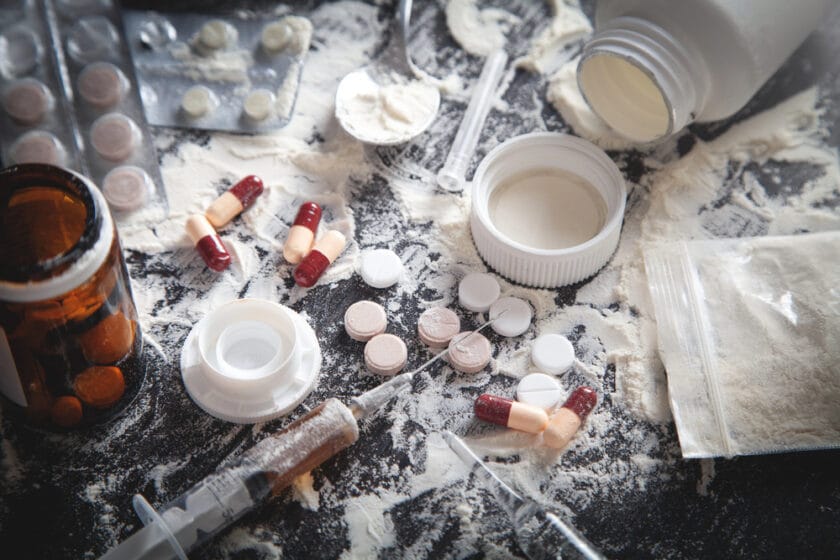Support for Families of Drug Users: How We Help Those Affected by Someone Else’s AOD Use
It is widely accepted that risky alcohol and other drug (AOD) use causes stress not only to the individual using drugs but also to family members and significant others. This is similar to the difficulties families experience when facing a loved one’s mental or physical illness.
Holyoake provides comprehensive support services for families affected by AOD use. We offer various programs, helplines, and counselling services designed to enhance the overall well-being and coping strategies of families dealing with addiction.
Families impacted by serious AOD problems in one of their members can experience relationship conflicts and misunderstandings, a rearrangement of family roles and heightened anxiety in the family as a whole.
Much of the anxiety has to do with the uncertainty and unpredictability of the affected person’s mood and behaviour.
It helps to understand the common range of reactions and the stages that families may go through in coping with the challenges of AOD use.
Common Reactions
The language used to describe caregivers who support drug users can appear judgemental. Often, they may be referred to as ‘co-dependent’ or as an ‘enabler’ as if they were themselves contributing to the problem. As a result, family members or significant others may feel reluctant to raise these issues or approach for help for fear of being judged.
However, many of the coping strategies used by families can be seen as normal reactions to stressful and often traumatic events or circumstances caused by the problematic AOD use.
Family members experience a range of emotions when they realise that a family member or significant other is dependent on alcohol and/or other drugs. Initially, they may experience shock and disbelief and ask themselves, “where did we go wrong?” Sometimes, parents may blame themselves and feel worthless or helpless. Grief and fear are also very intense and common reactions. Feelings of blame and guilt are often amplified by stigma and discrimination in the community around AOD use.
Our family drug help services offer a range of support options, including family, group or individual counselling and access to support groups. These services are designed to enhance families’ coping strategies and overall mental health while navigating the challenges posed by substance misuse.
Other common reactions can include:
- Feeling confused, worried and stressed
- Experiencing anxiety and/or depression
- Having low self-esteem
- Experiencing a loss of control and trust
- Despair about the future
The effect of problematic drug use can put the very integrity of the family at risk. Families may even be in greater crisis than the person using AOD.
Additionally, if a family member is using AOD and has no intention of stopping, family members often feel alienated, ashamed and powerless and may become socially isolated. Feeling ashamed can prevent family members from reaching out to others – not just other family members, but friends and even professionals for help.
Stages Families May Go Through
Holyoake will help you to understand that there are a number of stages that you may have gone through in trying to support and help the family member/significant other whose drug use has become problematic.
It is common for family members to try and find an acceptable explanation for the problematic AOD use, and initially, they may tolerate the behaviour, provide support, avoid confrontation, assume some of the drug user’s responsibilities and “lighten their load”, all in the hope that the drug use will cease. Inadvertently, this well-intentioned approach may provide more space and opportunity for the person to continue their AOD use.
When this approach is not successful, family members may attempt to control the AOD use by actions such as disposing of the alcohol or other drugs, restricting money where possible, making threats and punishing the person who is using drugs. These responses can lead to anger and frustration on the part of the family member using drugs, and as a consequence, their drinking or drug use may go “underground”.
As the AOD use continues, there is a growing acceptance that these strategies may not be working. Drug counselling can play a crucial role here by improving communication and coping strategies within the family, whether or not the individual using substances is involved.
Shame can lead family members to try and cover up the AOD use behaviour. Consequently, this may lead to periods of extended social isolation.
AOD use issues can put extreme pressure on family members and on their relationships with each other and the person who is experiencing difficulties with their drug use.
We know that families do the best they can in very difficult situations. It is not uncommon for many to say that they feel that they have tried everything, and that nothing seems to work.
Holyoake will help you to understand the distinction between your intention (which is usually good) and the effect of your actions. This information is important in helping you to understand if your actions and strategies are helpful, or inadvertently unhelpful.
What Can You Expect From Holyoake
It is widely documented that treatment outcomes for drug users can be improved if families and significant others are receiving support in their own right. There is a recognition that without the involvement of family and significant others, it is easy to focus on the individual using drugs in isolation from their family and broader social circumstances.
Holyoake understands that as a significant other concerned about someone else’s AOD use, you may require support and counselling for yourself. Counsellors understand that you are at increased risk of stress-related physical and psychological problems.
Appropriate family support can reduce the impact and harm of the AOD use, and improve family functioning. Counsellors will work together with you to assess current coping strategies and determine if they are helpful or not in changing the drug-using behaviour.
You will be provided with information about how to support the person with the AOD problem, and it may encourage them to seek support themselves.
A key outcome will be to enhance the quality of the relationship you have with the person with the AOD use issues.
We know that people usually do the best they can in extremely difficult situations. We understand that you may feel exhausted and traumatised by the impact of the drug use on the family.
We acknowledge that the most important issue for you may be to help your family member with their problematic AOD use. We understand that your focus will be on them, and you may be seeking help to identify ways to stop them from using AODs.
Family-focused approaches in drug treatment services can provide significant benefits, including emotional and practical assistance, which are crucial for individuals undergoing recovery.
Counsellors at Holyoake have a sound understanding of working within a family-inclusive practice. They will work with you in an open, respectful, empathic and collaborative way, acknowledging that you have probably done everything you can to help and support the person with the AOD problems.
The Relationships in Focus Program
At Holyoake, the Relationships in Focus program is designed to support people impacted by someone else’s problematic AOD use. This program includes both individual counselling and/or attendance at a group program. People who have participated in this program state that they have experienced an increased sense of wellbeing, quality of life and sense of self.
Holyoake works within the ‘stress-strain-coping-support’ model, which aims to reduce your level of strain, both physical and psychological, and enhance your coping mechanisms.
In the first instance, you will be provided with the opportunity to talk about your concerns and needs. You will be given information about the different types of drugs, the idea of dependence, the possibility of change, relapse and harm reduction. Opportunities to build social supports will be explored with you, and if you need specialist intervention, referrals will be discussed with you.
Frequently Asked Questions
Holyoake provides counselling, support groups, and educational programs for families and loved ones affected by someone else’s alcohol or drug use. Family counselling plays a crucial role in improving communication and coping strategies within the family.
Our Relationships in Focus program helps family members develop coping strategies, improve communication, and reduce stress.Problematic alcohol and other drug (AOD) use doesn’t just affect the individual; it can cause significant stress and emotional strain on family members and friends.
Family drug support services are crucial in providing emotional and practical support through counselling, education programs, and resources aimed at enhancing the well-being and coping strategies of families dealing with addiction issues.
Accessing support can help improve mental health, rebuild relationships, and create a more positive environment for both the individual and their loved ones.If your loved one’s alcohol or drug use is affecting their health, relationships, employment, or daily responsibilities, it may be a sign of problematic use. If you are feeling worried, stressed, or struggling to cope, it’s important to seek guidance and support.
While you cannot force someone to change, you can educate yourself on AOD use, set boundaries, seek professional advice, and access family support groups. Holyoake can help you develop practical strategies that are beneficial for both you and your loved one.
Yes, Holyoake offers support groups for parents, partners, and family members impacted by someone else’s substance use.
A family support group provides a structured environment where families can come together to share experiences and learn coping strategies. These groups provide a safe space to share experiences, gain insights, and learn coping skills from others in similar situations.
Yes. Research shows that when family members receive counselling and support, it can positively impact the person struggling with AOD use. By improving your own well-being and learning effective communication strategies, you may encourage them to seek help.
Yes, Holyoake offers free and accessible support services for individuals and families affected by alcohol or drug use. Contact us to learn more about available programs.
It’s common for individuals struggling with alcohol or drug issues to resist help. Holyoake can support you in managing this challenge by providing practical advice, coping techniques, and guidance on setting healthy boundaries.
Yes. If additional support is required, we can refer you to appropriate drug and alcohol treatment services, mental health professionals, or other family support programs.
You can reach out to us by phone, email, or via our website to schedule an appointment. We offer one-on-one counselling and group programs to help families navigate the challenges of AOD use and other mental health-related issues.
For more information or support, contact Holyoake today. Our team is here to help you navigate relapse and work towards a healthier, substance-free future.
References
Helfgott, S. (2009). Counselling significant others. In S. Helfgott & S. Allsop (Eds). Helping change: The drug and alcohol counsellors training program. Perth. WA. Drug and Alcohol Office.
Orford, J., Natera, G., Copello, A., et al. (2005). Coping with alcohol and drug problems: The experiences of family members in three contrasting cultures. UK. Routledge.
Stone, J., Marsh, A., Dale, A., Willis, L., O’Toole, S., Helfgott, S., Bennetts, A., Cleary, L., Ditchburn, S., Jacobson, H., Rea, R., Aitken, D., Lowery, M., Oh, G., Stark, R.,& Stevens, C. (2019). Counselling Guidelines: Alcohol and other drug issues (4th ed.). Perth, Western Australia: Mental Health Commission.


